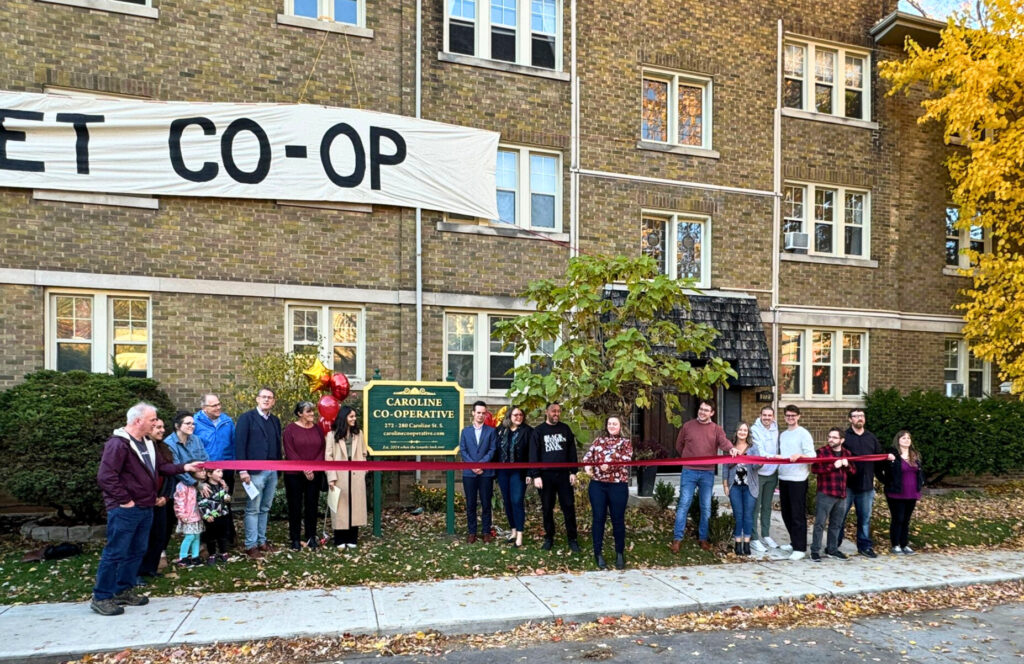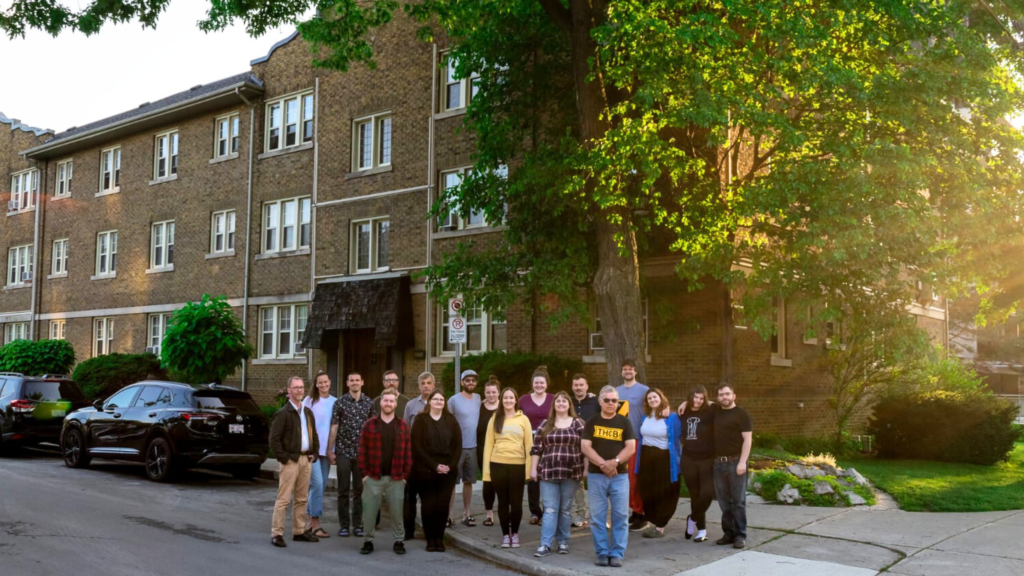Like many Canadian cities, Hamilton is grappling with a growing housing affordability crisis, driven by a combination of rising housing costs, stagnant wages, and increasing demand for housing. The city has seen a significant surge in home prices and rents, making it challenging for many residents to secure affordable housing. Under these circumstances, it is necessary to act to protect affordable units by removing them from the speculative market.
It is in this context that the Caroline Co-op project in Hamilton was undertaken. It was triggered when a six-unit building, home to long-standing tenants, was listed for sale, threatening their housing security.
In 2023, the tenants rallied and reached out to the Centre for support to acquire and convert the building into community housing. They were allocated $50,000 to form a cooperative and kickstart their community-driven solution to the financialization of their homes.
The establishment of Caroline Co-op in 2024 successfully prevented the tenants from being evicted through forced relocation and/or rent increases though a collaborative effort involving government, non-profit organizations, and financial institutions.
The City of Hamilton provided financial support, including down payment assistance, operating subsidies, and funding for building inspections. CHF Canada and the Golden Horseshoe Co-operative Housing Federation contributed to governance training, advocacy, and education. Financial institutions such as First Ontario Credit Union and New Market Funds offered mortgages and investment funds, while the Hamilton Community Foundation supported acquisition-related costs. This collective effort highlights the value of partnerships in fostering sustainable, community-driven housing initiatives.
Stopping gentrification in its tracks: Caroline Co-op as a model for change
Caroline Co-op is a shining example of how tenant-led efforts can preserve housing and ensure it remains accessible for all. This community-driven approach ensures the project responds to the needs of the residents.
The project directly addressed the loss of affordable housing by empowering tenants against the financialization of housing.
Hamilton has experienced a significant decline in affordable housing. Between 2010 and 2021, the average rent for a two-bedroom apartment rose by 43%, surpassing inflation (23%) and the provincial average (40%). Newer rental units built after 2015 are even more expensive, with rents 44% higher on average. Although new purpose-built rentals were initiated in 2022, they are expected to widen the gap between older and newer rental costs, because they are likely to be priced higher than the existing rental stock.
Low-income residents have been most affected, with a net loss of 4,950 units under $750/month between 2016 and 2021, leading to a shortfall of nearly 8,000 affordable units for those earning $30,000 or less annually.

Over 25,000 affordable rental units (with rents less than $1,000 per month) were lost from Hamilton’s private market rental stock from 2011 to 2021. In the same four-year period, City Housing Hamilton and affordable housing developers only succeeded in building 862 units or 3.4% of what was lost.
Caroline Co-op not only safeguarded housing for a group of tenants but also established a replicable model for other communities facing similar challenges. It highlights how tenant-led initiatives can effectively and sustainably preserve affordable housing. It showcases how a well-executed approach can evolve into a scalable and repeatable solution, supported by strategic financial investment.

“We were able to help a group of people keep their housing, keep it affordable, and present a model for other tenants who are in a similar situation.” said Scott Stager Piatkowski, Ontario Program Manager for the Centre. “In the current housing crisis, this type of win feels really nice.”
Through the cooperative model, tenants have transitioned from passive residents to active stewards, contributing to a more dynamic and resilient community housing sector.

From vision to action: Scaling community-led housing solutions
As housing affordability continues to erode in cities like Hamilton across the country, we need collective action. Community housing organizations, governments, and financial institutions must come together to support community-led efforts and scale solutions that prioritize people over profit.
Let Caroline Co-op inspire bold initiatives to not only protect existing homes but also to expand community housing to 20% of the market share!



